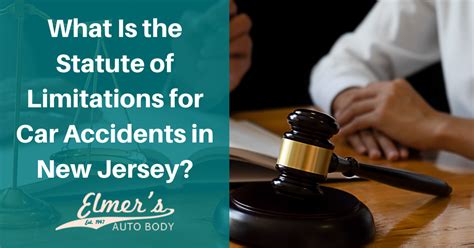
Car accidents can be devastating, resulting in physical injuries, emotional trauma, and financial hardships. If you’ve been involved in a car accident and are considering filing a lawsuit, it’s important to understand the statute of limitations. The statute of limitations sets the time limit for when you can file a lawsuit after an accident. Here’s what you need to know:
1. What is the statute of limitations for car accident lawsuits?
The statute of limitations for car accident lawsuits varies from state to state. In general, it typically ranges from one to six years. It’s crucial to know the specific statute of limitations in your state as failing to file a lawsuit within the specified time frame can result in your case being dismissed.
2. When does the statute of limitations start?
The clock starts ticking on the statute of limitations from the date of the car accident. It’s important to note that the statute of limitations may be tolled or paused in certain situations, such as if the injured party is a minor or if the defendant leaves the state.
3. Why is the statute of limitations important?
The statute of limitations serves several purposes. Firstly, it ensures that lawsuits are filed in a timely manner, allowing for a faster resolution of cases. Additionally, it preserves the integrity of evidence and witness testimony, as memories fade and evidence deteriorates over time. Lastly, the statute of limitations provides a sense of finality, allowing individuals to move on from the accident and focus on their recovery.
4. Can the statute of limitations be extended?
In some cases, the statute of limitations may be extended. This is known as tolling. Tolling can occur if the injured party was not immediately aware of their injuries or if the defendant intentionally concealed their involvement in the accident. It’s important to consult with an attorney to determine if tolling applies to your case.
5. What happens if I miss the statute of limitations?
If you miss the statute of limitations for filing a car accident lawsuit, your case will likely be dismissed. Once the statute of limitations has expired, you lose your right to seek compensation through a lawsuit. It’s crucial to act promptly and consult with a personal injury attorney as soon as possible after a car accident.
6. Can the statute of limitations be different for different claims?
Yes, the statute of limitations can vary depending on the type of claim you are pursuing. For example, there may be a shorter statute of limitations for property damage claims compared to personal injury claims. It’s important to be aware of the specific deadlines for each type of claim you wish to pursue.
7. How can an attorney help with the statute of limitations?
An experienced personal injury attorney can help ensure that your lawsuit is filed within the statute of limitations. They can review the details of your case, gather evidence, and handle all the necessary paperwork and filings. By consulting with an attorney early on, you can avoid potential pitfalls and maximize your chances of a successful lawsuit.
Frequently Asked Questions:
1. Can I file a car accident lawsuit after the statute of limitations has expired?
No, once the statute of limitations has expired, you lose your right to file a lawsuit for that particular claim. It’s crucial to act promptly and consult with an attorney as soon as possible after a car accident.
2. Do all states have the same statute of limitations for car accident lawsuits?
No, the statute of limitations for car accident lawsuits varies from state to state. It’s important to know the specific statute of limitations in your state to ensure you file your lawsuit within the appropriate time frame.
3. Can the statute of limitations be extended in cases of severe injuries?
In some cases, the statute of limitations may be extended if the injured party was not immediately aware of their injuries. However, it’s important to consult with an attorney to determine if tolling applies to your specific situation.
4. What happens if the defendant leaves the state after a car accident?
If the defendant leaves the state after a car accident, the statute of limitations may be tolled or paused. This means that the time limit for filing a lawsuit may be extended. Consult with an attorney to understand how this may apply to your case.
5. Can I still pursue a claim if the car accident was partially my fault?
In some states, you may still be able to pursue a claim even if you were partially at fault for the car accident. This is known as comparative negligence. Consult with an attorney to understand how your state’s laws may affect your ability to seek compensation.